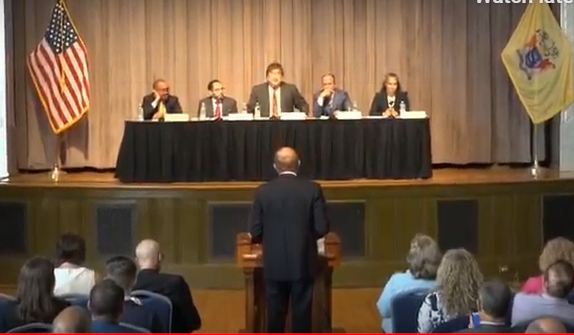New Jersey Tax Incentive Task Force Submits Second Report; Finds NJEDA ‘Culture of Getting To Yes’ And ‘Phantom Tax Provisions’ To Benefit Holtec

Today, Governor Phil Murphy’s Tax Incentive Task Force submits this second report pursuant to its mandate issued in Executive Order No. 52. The report is the result of dozens of interviews and the review of thousands of documents related to the state’s tax incentive programs, which expired in July.
The principal findings contained in the report include the following:
—In its administration of tax incentive programs, the Economic Development Authority (EDA) has demonstrated a culture of “getting to yes” with companies applying for awards. Although the Task Force has not observed that the EDA willfully awarded incentives in violation of legal requirements, there are instances in which the agency made efforts to interpret and apply regulations in a way that favored the interests of the applicant, raising questions concerning the extent to which the state body carried out its role as a steward of public funds.
—The EDA’s funding structure is such that the award of tax credits is directly and positively correlated to the agency’s own revenues.
—The EDA’s manner of administering of New Jersey’s tax incentive programs failed to maximize the intended economic benefits to the state.
—Deficiencies in the EDA’s evaluation of tax incentive applications may have resulted in certain improper awards to companies.
—The EDA’s post-approval and certification processes lack robust due diligence, rely too heavily on the data provided by awardees and may have resulted in improper or inflated awards.
—The EDA failed to accurately determine whether applicants are “at risk” of locating jobs outside of New Jersey if denied incentives, resulting in incentives awarded in error. Due to the agency’s deficient evaluation process, companies applying for tax incentives may easily misrepresent their relocation intentions without fear of likely consequences. There is evidence that certain companies obtained millions of dollars in awards based on assertions that they would move to out-of-state locations that were never genuinely under consideration. We therefore conclude that these incentives were awarded in error, as detailed in section VII of the report.
—Consultants who apply for EDA tax incentive awards on behalf of clients were aware of and have exploited deficiencies in the agency’s method of evaluating the jobs “at risk” of leaving the state. Certain consultants have also failed to register and disclose lobbying efforts as required by New Jersey state law.
—Additional evidence relating to the EDA’s oversight of the tax incentive applications of Cooper Health, Conner Strong & Buckelew, The Michaels Organization and NFI.
—The EDA lacks a robust due diligence and review process for required disclosures of certain criminal, civil and legal proceedings that involve applicant companies or their affiliates, as detailed in section VIII of the report.
—New evidence regarding “phantom tax provisions,” which were identified in the first report of the Task Force as permitting companies to artificially boost the amount of their awards by characterizing taxes that the company will never actually pay as “benefits to the State.” In its second report, the Task Force finds that these provisions were introduced into the Economic Opportunity Act of 2013 for the benefit of Holtec International, as detailed in section VI of the report.
—The Task Force submits new recommendations to the EDA pertaining to its decision-making processes, measures to mitigate potential conflicts of interest between the agency’s administration of programs and its own funding, measures to improve due diligence in evaluation of company claims on applications, and the appointment of an inspector general to promote oversight.
New Jersey Task Force on EDA's Tax Incentives Second Report







Leave a Reply